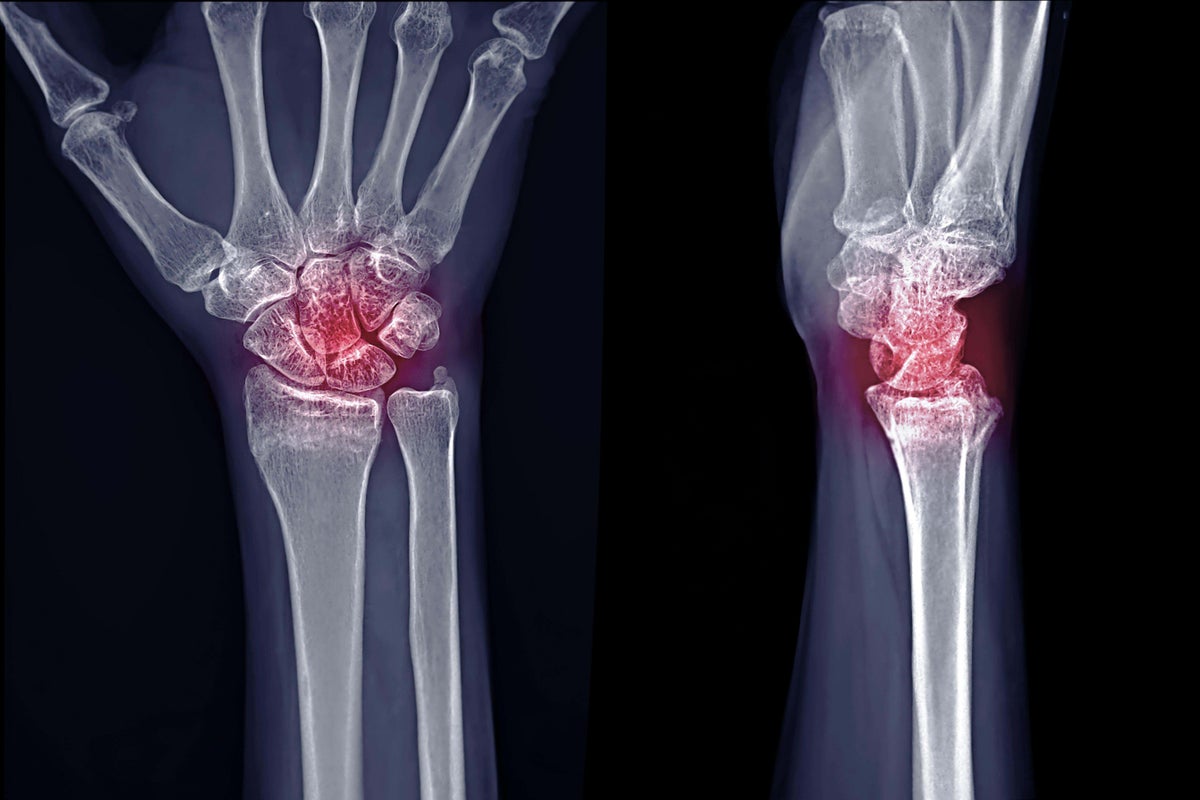
Up to one in three people diagnosed with rheumatoid arthritis could be at risk of long-term opioid use, a new study suggests.
Academics warned that people diagnosed with rheumatic and musculoskeletal conditions (RMD) are “vulnerable” to long-term use of the strong pain relief medicines.
Experts warned that people who use the drugs over a long period can become addicted and opioid dependency is linked to other harms.
A considerable proportion of patients with RMDs starting opioids for the first time, transition to long-term opioid use.— Dr Meghna Jani
The new paper, published in the Annals of the Rheumatic Diseases, examined information on more than 800,000 people registered at GP surgeries across the UK who have a diagnosis of rheumatoid arthritis, psoriatic arthritis, axial spondyloarthritis, systemic lupus erythematosus, osteoarthritis or fibromyalgia.
They examined information on opioid use among these patients between 2006 and 2021.
The researchers, led by academics from the University of Manchester, found that one in seven patients become long-term opioid users.
This could be as high as one in three patients who have rheumatoid arthritis or fibromyalgia, the authors said.
“Our study shows that a considerable proportion of patients with RMDs starting opioids for the first time, transition to long-term opioid use,” said study principle investigator Dr Meghna Jani from the University of Manchester.
“Because long-term opioid therapy is associated with poor health outcomes, these findings warrant vigilance when prescribing these drugs.
“Long-term use is particularly pronounced in fibromyalgia patients, who suffer chronic widespread pain for which there are no disease modifying treatment options.
“This is also more common than we initially thought, in rheumatoid arthritis and axial spondyloarthritis.”
Commenting on the study, Deborah Alsina, chief executive of the charity Versus Arthritis, said: “People with arthritis experiencing relentless and excruciating chronic pain are often desperate for pain relief, and it is sometimes appropriate for doctors to prescribe opioids in the short term.
“If people benefit from opioids, then they should be able to access these medicines.
“However, there are some who have a negative experience taking opioids, including risk of dependence due to long-term use. Others have found that opioids make no difference to their quality of life, for good or bad.
“The decision to take any medicine should always be shared between a person and their doctor. This research can be used by doctors to inform people with arthritis of the possible benefits and risks of opioids and whether it is the right medicine for them.”







